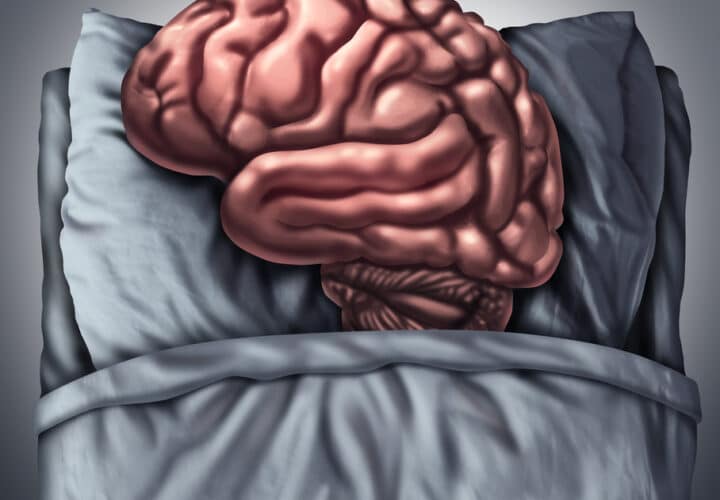Poor sleep has long been linked to cognitive decline. A new study from Washington University Medical School in St. Louis has taken that link one step further. Scientists showed that a sleepless night caused raised levels of beta-amyloid, the protein associated with Alzheimer’s disease, at rates that the brain could not clear as fast as it was produced.
“This study is the clearest demonstration in humans that sleep disruption leads to an increased risk of Alzheimer’s disease through an amyloid beta mechanism,” said senior author Randall Bateman, MD.
The study was small—only eight people—but each person participated in several different sleep scenarios: staying up all night; getting a typical night’s sleep without any sleep aids; or using a prescription sleep medication called odium oxybate that increases slow-wave sleep—the kind that people need in order to wake up feeling refreshed. Participants were between 30 and 60 with no history of sleep problems or cognitive decline.
The sleeping subjects were monitored for 36 hours, starting in the morning before falling asleep and continuing through the afternoon of the next day. Researchers took samples of beta-amyloid from fluid in the spinal cord and brain every two hours to measure how beta-amyloid fluctuates with how tired or awake someone might be. Participants came back between four and six months later to undergo the scenarios again.
Researchers found that people who were sleep deprived had beta-amyloid levels that were 25 to 30 percent higher than those who got a full night’s sleep. Those levels are around what scientists see in the brains of those who are genetically predisposed to Alzheimer’s.
When beta-amyloid levels are high, it’s more likely that the protein will form into plaques. Plaques of this protein are what characterize Alzheimer’s disease, and it’s the leading theory on why Alzheimer’s occurs.
Of course, one night of bad sleep is not going to doom someone to Alzheimer’s, said the study authors.
“I don’t want anyone to think that they are going to get Alzheimer’s disease because they pulled an all-nighter in college,” said first author Brendan Lucey, MD, in a statement. “One night probably has no effect on your overall risk of Alzheimer’s. We are really much more concerned about people with chronic sleep problems.”
According to the Centers for Disease Control and Prevention, 35 percent of Americans don’t get the recommended minimum of seven hours of sleep each night.
The study was published in the Annals of Neurology.


